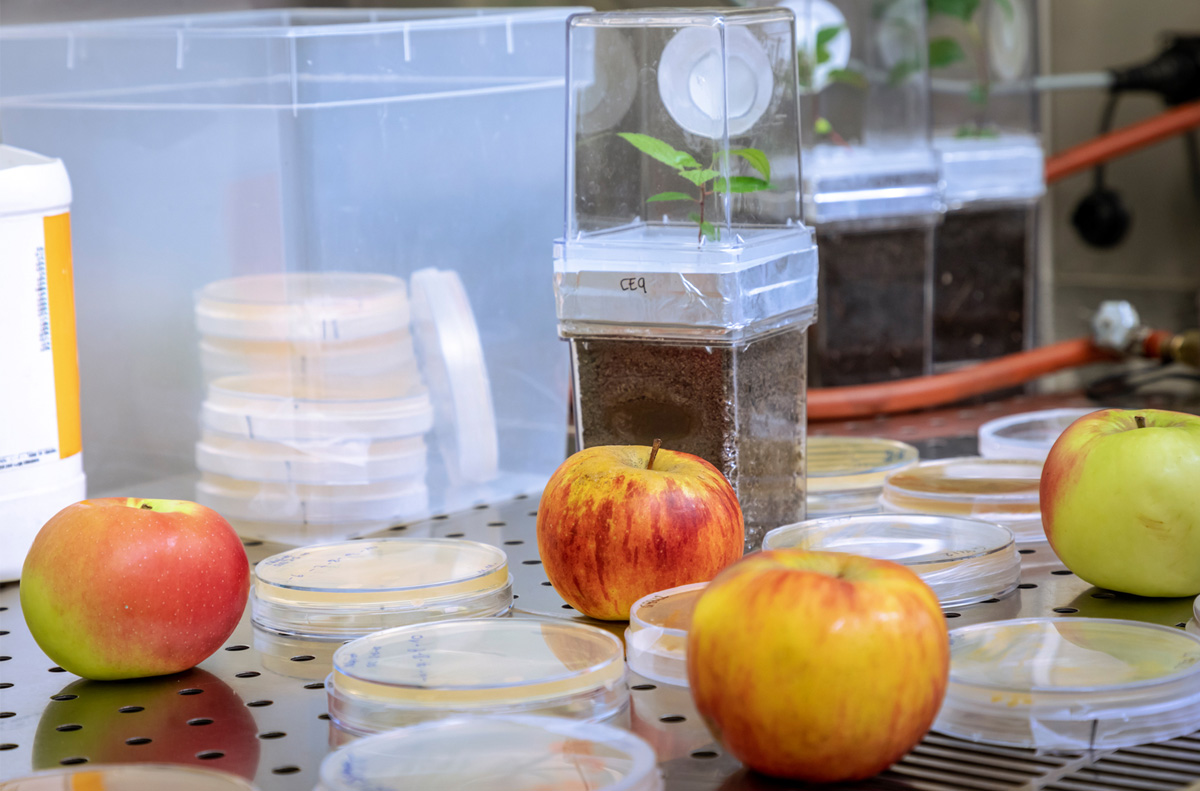
Microbiome Study Provides Strategies for Healthy and Climate-Resistant Fruit and Vegetables
December 9, 2021| |
A study led by scientists from Graz University of Technology (TU Graz) in Austria shows that apple trees inherit their microbiome to the same extent as their genes. The results of this study lay the foundation for new breeding strategies for healthy and climate-robust fruit and vegetables.
Microbiome research is only a few decades old, but it has already produced some ground-breaking findings. One such finding is that humans, animals, and plants have very specifically adapted microbiomes that have taken over essential functions. Both organism and microbiome have evolved in co-evolution, i.e. in mutual influence. Today, all organisms are considered to be "holobionts" – jointly functioning units with numerous specialized microorganisms.
The interdisciplinary team of researchers compared the microbiome of modern domesticated apple crops with the microbiome of their wild ancestors and the microbiome of closely related species. Using molecular analyses and bioinformatic methods, the group determined for the first time that the microbiome is inherited to the same extent as the genes. Apples that are genetically similar thus also harbor a similar microbiome. And surprisingly, modern apple varieties still contain some of the microbiome of their wild ancestors.
For more details, read the article in TU Graz News.
| |
You might also like:
- Studies Show How Microbiome Affects Breeding of Apples and Oil Pumpkins
- University of Toronto Study Says Root Microbiome Key to Drought Resistant Plants
- International Research Team Identifies Bacterium that Protects Rice Plants from Diseases
Biotech Updates is a weekly newsletter of ISAAA, a not-for-profit organization. It is distributed for free to over 22,000 subscribers worldwide to inform them about the key developments in biosciences, especially in biotechnology. Your support will help us in our mission to feed the world with knowledge. You can help by donating as little as $10.
-
See more articles:
-
News from Around the World
- USDA FAS Reports Biotech Updates in Pakistan and Korea
- International Collaboration Brings Wild Wheat's Untapped Diversity into Elite Lines
- Global Database Reveals Humans are Biggest Driver of Plant Homogenization
- Thailand Presents Impressive Line-Up of Biotech Crop R&D During ISAAA's Latest Webinar
- FSANZ Opens Call for Comments on GM Wheat Product Importation
- ISAAA to Release Primer on Genome Editing
- Microbiome Study Provides Strategies for Healthy and Climate-Resistant Fruit and Vegetables
-
Research Highlights
- Suppressing Jasmonate Signaling Attenuation Confers Stress Tolerance in Arabidopsis
-
Plant
- University of Texas Scientists Discover Potential New Gene Editing Tools
- Scientists Use TALENs to Edit Tuna
- Researchers Edit Genomes of Microbes Growing in a Community of Different Species
-
Health
- Omicron Variant Could Weaken COVID Vaccine Protection
-
Read the latest: - Biotech Updates (December 17, 2025)
- Gene Editing Supplement (December 17, 2025)
- Gene Drive Supplement (February 22, 2023)
-
Subscribe to BU: - Share
- Tweet

